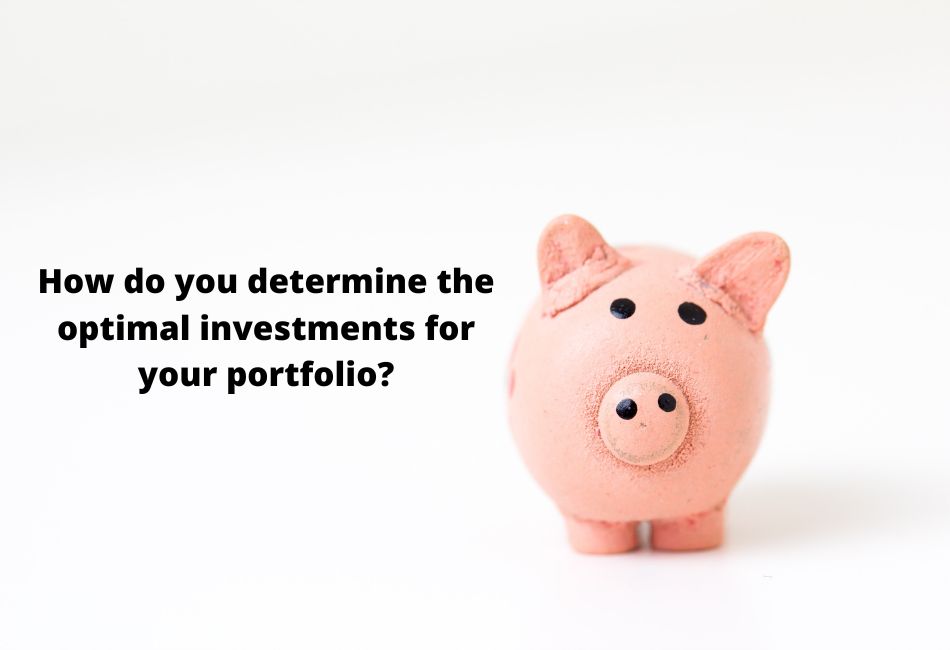It doesn’t matter where you are in life or what stage you’re in. It’s crucial to constantly make wise investments that will help your money grow over time.
If you are just getting started in the world of investing, it is imperative that you select assets that will give you returns that are reliable. You should also give some thought to the possibility of investing in secure assets such as government bonds or certificates of deposit, both of which can help you maintain a consistent level of income throughout your life.
As you become older, it is essential to consider how long you intend to keep your money invested to maximise its potential return. Certain assets, such as stocks might offer you rewards in the short term; nevertheless, these investments can also be dangerous.
You should consider investing with a longer time horizon, such as bonds or mutual funds because these assets will provide you with both stability and growth over the course of your tenure. This blog will provide tips on selecting the most suitable assets for your portfolio, bearing in mind your individual requirements.
Choose the right investments for your portfolio
When choosing investments, it is important to keep a few essential points in mind, regardless of whether you are just getting started with investing or if you are trying to alter your investment approach. Here are some starting points:
1. Select assets with a level of risk that is appropriate for you.
Some types of assets, like stocks, are subject to more volatility than others, like bonds. Determine your risk tolerance before picking an investment.
2. Do not put too much money into your investments.
Because of the long-term nature of investments, you should take care not to overextend yourself financially. Make it a goal to have at least three to six months’ worth of living costs stashed away in case of an emergency, such as in the event that the stock market suffers a decline or your bond pays out less than you anticipated.
3. You should always be prepared for changes in market conditions.
You should always be ready for market price changes, as these shifts can occur at any time. Prepare a strategy for how you will respond to a bear market, and don’t hesitate to adjust your investing strategy as the situation warrants. If you are not prepared for unexpected market conditions, your income might be affected, and you may default on your loans like Car finance instant approval.
How to reduce portfolio risk?
Diversifying your assets is one of the most significant things you can do to lower the overall risk of your portfolio, and this is true whether or not you are a seasoned investor. The following are some pointers that can assist you in accomplishing that goal:
1. Determine your financial objectives and search for assets that correspond to your level of comfort with risk.
2. Give some thought to hiring a financial adviser who can assist you in evaluating your level of risk and determining which investments are best suited for you.
3. Ensure that you are up to date on any changes that have occurred in the market, and revise your investment strategy accordingly.
Tips for diversification
There is no universally applicable response to this issue since the solution that works best for you in terms of achieving diversity will be unique to your circumstances and the objectives you have for your investments. However, to diversify your portfolio, consider the following advice:
1. Begin with a diverse asset class: Instead of investing just in stocks or bonds, you should consider investing in a wide range of other asset classes, such as real estate, commodities, and exchange-traded funds (ETFs). If you do this, you will have a wider range of choices available to you in the event that the market has a downturn, and you will reduce the likelihood of being overly focused on a single industry.
2. Think about investing in abroad markets: If you want to broaden your exposure to international markets, you should consider making investments in nations other than the one in which you live. You’ll be able to take advantage of more possibilities to diversify your portfolio by investing in a wide range of economies and currencies if you go about it in this manner.
3. Spread your assets over various industries: Instead of putting all your money into one industry, you should diversify your holdings by investing in a number of other industries. This will prevent you from becoming overly committed in any one area. If you do this, the performance of your whole portfolio will be less influenced if the industry in which you are investing has declined.
4. Don’t overlook the importance of savings: Putting money aside for long-term goals like retirement is one of the most effective strategies to increase your portfolio’s diversity. In this way, regardless of the market’s state, you will always have a reliable source of income. If you don’t save enough, you might default on loans like car finance with no credit check no guarantor whenever your income dips.
The importance of asset allocation
One of the essential ideas for investors to get their heads around is the concept of asset allocation. Because of the instability of the stock market, it is more vital than ever to ensure that your assets are spread out among various asset classes. The term “asset allocation” refers to determining which combinations of assets a person or family ought to hold to get the greatest possible return on their investments.
Regarding asset allocation, one may approach the topic in several ways; nevertheless, one must keep in mind, above all others, the necessity of maintaining a diverse portfolio. Having a diversified portfolio implies having a variety of asset classes within that portfolio so that you are not overly concentrated in any area.
For instance, if you primarily invest in stocks, you should still diversify your holdings in your portfolio by including some bonds and mutual funds in addition to your stock holdings. You should have assets in real estate, bonds, and mutual funds if you wish to invest in real estate.
Real estate is the safest investment option. If you are a more cautious investor, you should have a portfolio that includes both assets that are relatively low risk, such as bonds, and assets that carry a higher degree of uncertainty, such as stocks (like stocks).
Asset allocation is a crucial part of investing and should be checked often. You lessen the likelihood that you will suffer a loss in your investments and increase the likelihood that you will be able to earn the highest possible rate of return on those assets if you have a diversified portfolio.
How to maximise tax deductions?
It is crucial to use tax breaks in the most efficient manner possible to get the most benefit out of your assets and loans like debt consolidation loans for bad credit in the UK. Tax breaks may be a significant tool for decreasing your taxes. Here are some pointers to help you get the most out of your tax breaks:
Get familiar with your tax deductions
There is a wide selection of tax relief options, and it might be beneficial to be aware of the tax exemptions pertinent to your situation. You may get information regarding tax benefits on the Internal Revenue Service (IRS) website or by contacting your accountant or tax preparer.
Evaluate the various tax breaks
Once you are aware of the many tax exemptions that are open to you, the next step is to evaluate each one to determine which one will benefit you the most. A tax benefit calculator is available for your use if you need assistance in making the comparison.
Use tax savings
Claim the tax deduction you’ve discovered to be the most advantageous for your situation once you’ve done the necessary research. Call the IRS or your accountant to achieve this.
Make only minimal use of available tax benefits
Tax exemptions and deductions can be useful tools; nevertheless, it is essential to utilise them in the most efficient manner possible. Make the most of your tax benefits without abusing them so that you don’t end up paying more taxes than necessary.
Conclusion
Exciting times lie ahead for those who are interested in investing. Because there is such a wide variety of choices, it can be challenging to choose how best to spend your money. You may, however, make the best decisions for your portfolio if you spend some time learning about the many possibilities available to you and if you keep abreast of the most recent market developments.
It doesn’t matter where you are in life or what stage you’re in. It’s crucial to constantly make wise investments that will help your money grow over time.





